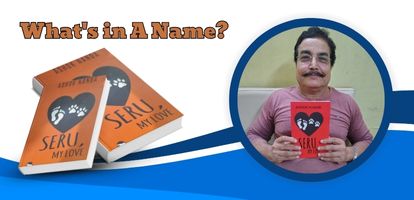


Sometimes, as I watch Seru play in the dust, I marvel at his freedom. He has no pedigree papers, no family tree, and certainly no surname. In fact, I recall a conversation, “You have no real name. Actually no dog has a real name. You know a real name has a name, a middle name and a surname or the family name. The surname comes from the family. For hundreds of years the descendants of the family are carrying the family name. In America if you say you are a Kennedy or a Ford, people will pay you respect. They will be interested in your family history. In India when you say your surname is Gandhi or Nehru, people will look at you. People will be curious about you when you simply utter your surname.”
It’s a curious thing, this human obsession with names. For Seru, a name is just a sound that means love, food, or a game of fetch. But for us, names—especially surnames carry weight. They can open doors or close them, command respect or invite prejudice. In many cultures, a surname is a badge of honor, a mark of lineage. In others, it can be a burden, a reminder of divisions that run deep.
The conversation deepens: “You know Seru; I was thinking why human beings have these surnames. It is the cause of many kinds of inequality. It spoils democracy. In India I am told people will ask you your full name. From your surname they will know your caste and accordingly they will show you their respect. It can be quite embarrassing and diminishing to tell your surname if you belong to low castes that were treated as untouchables in the recent past. Many people in India change their surname to boast of a higher social status. I would have really hated to use a surname if I were from a lower caste.”
How strange, that something as simple as a word can shape destinies. In India, a surname can reveal your caste, your history, your “place” in society. It can bring pride or pain, opportunity or exclusion. It’s a silent code, understood by all, that can lift you up or hold you back. People have even changed their surnames to escape the stigma of birth, to claim a new identity in a world that judges before it listens.
Seru, blissfully unaware of all this, reminds us of a different way to belong. He doesn’t care about your name or your family. He cares about how you treat him, how you play, how you love. In his world, respect is earned, not inherited. Dignity is shared, not reserved for a chosen few.
Perhaps we can learn from Seru’s innocence. Maybe the time has come to look beyond the names and the labels, to see each other as equals—worthy not because of our surnames, but because of our humanity. After all, a name is just a word. What matters is the heart behind it.